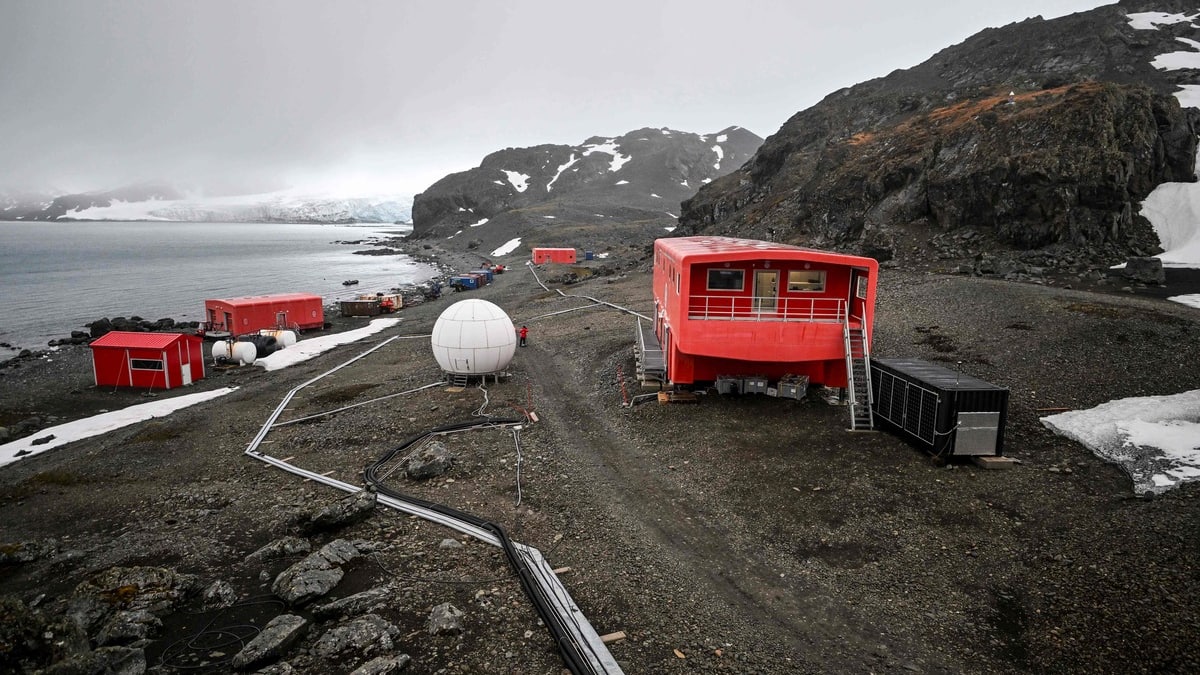For the third year in a row, Antarctica's ice level has reached a record low, but the catastrophic consequences of this situation “do not seem to matter for the world's population,” complains geologist Miguel Angel de Pablo: “Scientists don't listen to us.” “
“Teams studying Antarctic glaciers are finding widespread acceleration in glacier mass loss […] This creates an imbalance and the glaciers lose volume “much faster,” the Spanish geologist on the island of Livingston, almost 1,000 kilometers from the coast of southern Chile, tells AFP.
Mr. de Pablo, a professor at the University of Alcala in Madrid, has been studying the properties of Antarctica's frozen soils affected by the climate crisis caused by massive emissions of greenhouse gases for 16 years.
“The problem is that it is not easy to recover from this damage. Even if we stopped everything today, if we changed the rhythm of our lives in Western societies, the decline of glaciers would not stop tomorrow, nor would the frozen soils be lost or ecosystems affected,” he says, saying was “very worried”.
“We may multiply the warnings to make society aware of what is happening, but it seems to me that we scientists are not listened to, that we are alarmists, if it does not correspond to reality, let's just say what we say “We see,” adds the researcher of this island complex in the south of the Shetland Islands on the Antarctic Peninsula.
According to the National Snow and Ice Data Center in the United States, the ice extent of the White Continent was less than two million square kilometers in the last three months of February, during the austral summer. Unparalleled encrypted data. “The trend in sea ice extent in Antarctica has declined sharply almost every month since August 2016,” emphasizes the institute.
“Glacier mass loss is generally increasing,” Mr. de Pablo says next to the Spanish base of Juan Carlos I, on a black-sand beach surrounded by numerous blocks of ice floating at sea.
“We find thin icebergs, which are simply the result of the ice breaking up that forms in the winter, which is not a concern and is normal.” The problem is when you find large icebergs, because that indicates that the ice shelf is breaking up “, he says.
“Thinking about future generations”
For some scientists, satellite monitoring of Antarctica is not enough to determine with certainty the connection between global warming and melting ice on this side of the continent, as is the case in the Arctic.
But for Mr de Pablo the main reason is “global warming”. “It warms some of the ice on the surface […] and also the oceans. And when the water is warmer, “the glaciers underneath warm up and melt much faster.”
According to a European Space Agency study published in October 2023, the volume of about 40% of the floating ice on the White Continent has declined “significantly” over the past 25 years.
This phenomenon has “impacts” such as sea level rise, changes in ocean salinity due to the addition of fresh water and changing temperatures, notes Mr. de Pablo.
“We influence currents and how the oceans regulate the climate. Even though we are far from any inhabited part of the planet, what happens in Antarctica actually affects everything,” he points out.
To counteract global warming, experts recommend reducing fossil fuels, promoting renewable energy, stopping deforestation, recycling and using water sparingly.
“We have to ask ourselves if the rhythm of life and the way we live every day is really worth it, because at the end of the day we will lose the planet, there will be no second planet and we have to think. “about our future, our descendants and subsequent generations,” he warns.

